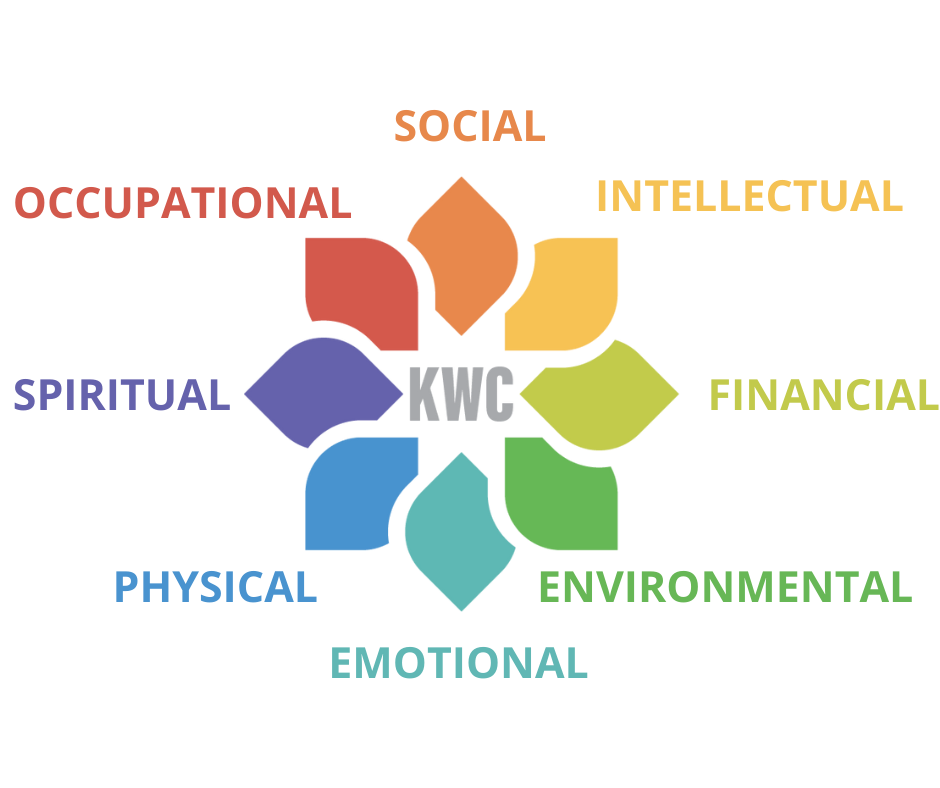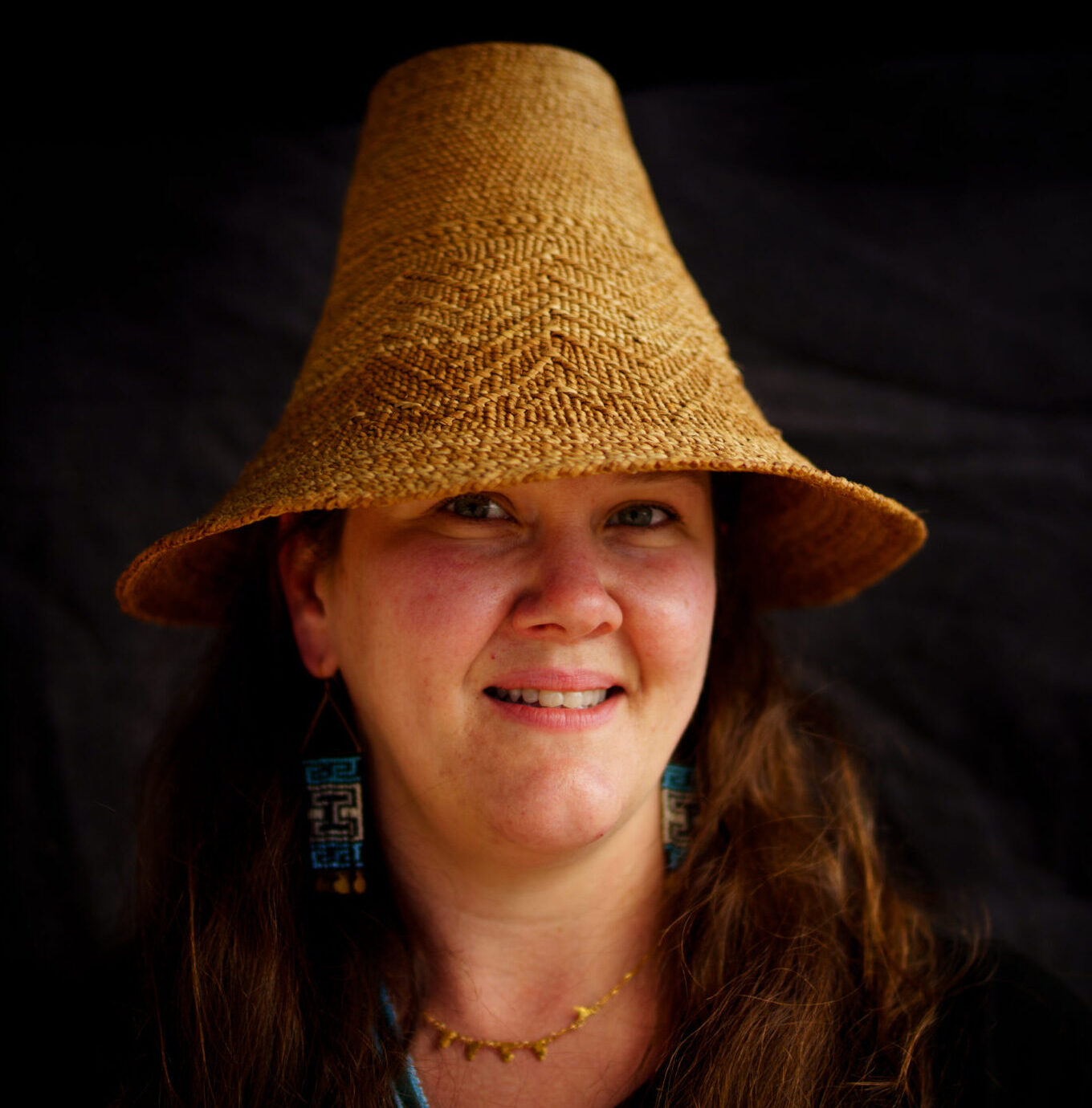- Mental Health
- Substance Use Prevention
- Recidivism
- Environment Protection
- Nutrition
- Health Equity
- Physical Health
- Literacy

The Ketchikan Wellness Coalition aims to increase the quality of life for Ketchikan’s residents. We support initiatives that address all 8 dimensions of Wellness, which are represented in our logo.
Through our Task Forces, the coalition works to strengthen partnerships and efficiency by bridging service gaps and increasing existing services. We leverage the skills, knowledge, and assets of community members, organizations, businesses, and government to increase capacity and improve outcomes around key issues affecting Ketchikan and its residents.
The Ketchikan Wellness Coalition aims to increase the quality of life for Ketchikan’s residents. We support initiatives that address all 8 dimensions of Wellness, which are represented in our logo.
Our vision is that Ketchikan is a vibrant and healthy community that people choose to live in.
Through our Task Forces, the coalition works to strengthen partnerships and efficiency by bridging service gaps and increasing existing services. We leverage the skills, knowledge, and assets of community members, organizations, businesses, and government to increase capacity and improve outcomes around key issues affecting Ketchikan and its residents.

In 2007, the United Way of Southeast Alaska released the Compass II survey, a comprehensive assessment addressing a wide array of health issues that detailed data related to Ketchikan collected through interviews, surveys, and focus groups. As a result of the findings, a group of individuals, led by Karen Eakes, identified the need for tangible and collaborative action to address the most pressing issues around health and wellness. This group met once a month for a year, developing a strategic plan and outlining the vision of the organization: “Establish Ketchikan as a vibrant community that people choose to live in and move to” and determining the mission statement: “Promote community wellness through assessment and action.” This group became the Steering Committee (Board) of the “Ketchikan Wellness Coalition”, an organization dedicated to addressing the needs identified in the Compass II Assessment and other community needs identified through future assessments. KWC became incorporated on 11/30/2009.
Five task forces were initially assembled: Empowering Youth, The Cost of Substance Abuse, Strengthening Cultural Unity, Uniting Around Life’s Challenges, and A Diverse Year-Round Economy. During the next year, two additional task forces joined the KWC: Promoting Respectful Relationships and Suicide Prevention Education and Awareness in Ketchikan (SPEAK). In November of 2012, the Tongass Community Food Alliance was added as the eighth task force.
Since the early years, task forces have developed in response to needs. Some taskforces have ended once goals have been accomplished or the work/programs transitioned to a permanent home in another organization. The Ketchikan Wellness Coalition remains an umbrella organization committed to supporting community action, utilizing the Task Force coalition model to address issues and needs that are identified through community assessments.
The organization and task forces are funded, in part, by grants from the City of Ketchikan, the Ketchikan Gateway Borough, individuals, foundations, community grants, corporate sponsors, KWC membership, the Federal Government, and the State of Alaska.
You can donate to a specific initiative or as a general donation. These generous donations allow us to continue doing the work we do supporting health and wellness activities. Find out more…
Have an issue you care about and want to make a difference? Join an active Task Force or start your own!
Members are the foundation of our Coalition. Everyone can become a member of the Ketchikan Wellness Coalition and actively support our efforts around wellness and health.
Be a leader for the community and contribute your skills, experience, and knowledge to help us reach our strategic goals!
Everyone can become a member of the Ketchikan Wellness Coalition and actively support our efforts around wellness and health.

Heather Evoy (she/her), is from Ketchikan and Metlakatla (Ancestral lands of the Taant’a and Sanyaa Kwáan Tlingit). She currently resides in Juneau, Alaska (Ancestral lands of the T’aaḵu and A’akw Kwáan Tlingit ). She has a variety of experience in local politics, environmental advocacy and conservation, youth mentorship, and is a lifelong advocate of food sovereignty and climate justice. In this work, Heather centers that Indigenous peoples have ancient oral histories that teach us how to live in right relationship with the salmon, the herring, edible greens and beach foods.
Nigel Wrangham has been a Certified Alcohol and Drug Counselor and Certified Prevention Specialist since 2000. He’s been a preschool teacher, counselor for federal prisoners on parole, parenting coach for families experiencing poverty and homelessness, and a freelance illustrator. When he worked in Uganda studying wild chimpanzees, he taught forest conservation to young people in local villages. From 2003 through 2017, Nigel taught prevention science, psychopharmacology, and media studies at the University of Oregon. He has served as the National Youth Coordinator for Mothers Against Drunk Driving (MADD), and is a certified Master Level Trainer for CADCA, where he develops curriculum and mentors young trainers in prevention and public health. His passion is supporting young people to build the equitable, just, and healthy society they deserve. He works with groups across the United States, sharing skills in prevention, social justice, brain development, and youth leadership. Nigel also spends time at home in Eugene, Oregon with his wife, his two extremely disobedient cats, and his two young children. When he gets the chance, he listens to old punk rock music way louder than he probably should. But these days, he hardly ever gets the chance
A Philippine-born, Alaska-grown, Professor of Public Health at the University of Alaska Anchorage (UAA). He is also the Chair of UAA’s Master of Public Health Program. Dr. Garcia was the recipient of the Alaska Public Health Association’s “Short Term Service Award” in 2002 and “The Barbara Berger Excellence in Public Health Award” in 2012. At UAA, Dr. Garcia has been awarded the Chancellor’s Award for Excellence in Community Service (2012), Chancellor’s Award for Excellence in Diversity (2016), and the Center for Community Engagement & Learning’s Community Builder Award (2013). Dr. Garcia, along with a group of UAA faculty and students, were awarded the UAA’s Stewardship Award in 2014 and the American Lung Association in Alaska’s Breathe Easy Champion Award in 2015 for the group’s successful effort in making the University of Alaska system smoke and tobacco-free. From 2015 to 2023, Dr. Garcia served as one of the health commissioners of the Anchorage Health Department. Dr. Garcia’s research interests include health promotion and disease prevention, tobacco prevention and control, Asian and Pacific Islander health, and issues related to social determinants of health.
E. J. R. David is a Professor of Psychology at the University of Alaska Anchorage, specializing in ethnic minority psychology. He has produced five books: Brown Skin, White Minds: Filipino -/ American Postcolonial Psychology (2013), Internalized Oppression: The Psychology of Marginalized Groups (2014), The Psychology of Oppression (2017), and We Have Not Stopped Trembling Yet (2018), and “The Encyclopedia of Filipina/x/o American Studies” (2022). He was the 2012 American Psychological Association Minority Fellowship Program Early Career Award in Research for Distinguished Contributions to the Field of Racial and Ethnic Minority Psychology; the 2013 Asian American Psychological Association Early Career Award for Distinguished Contributions to Research; and in 2015 he was inducted as a Fellow by the Asian American Psychological Association for “Unusual and Outstanding Contributions to Asian American Psychology.”